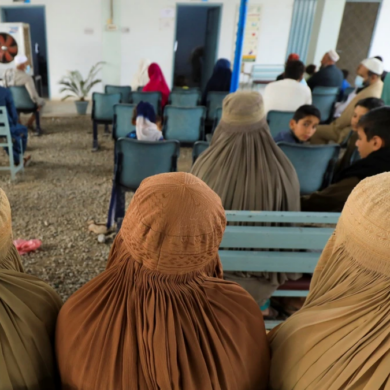Israel has imposed a “complete siege” on the Gaza Strip, cutting off vital supplies including electricity, food, and water to a crowded enclave that housed approximately 2.3 million people.
Defense Minister Yoav Gallant announced the siege in a video statement stating that “We are putting a complete siege on Gaza… No electricity, no food, no water, no gas — it´s all closed.”
The densely populated enclave, home to thousands, is now in the midst of a severe humanitarian crisis as Israeli military airstrikes relentlessly pound the region.
Israeli forces have declared control over southern areas near the Gaza Strip after intense battles with Hamas fighters. The surprise attack by Hamas, being compared to the impact of 9/11 by Israel, has plunged the nation into shock and disbelief, leading to a state of emergency in Israel.
The siege has left Gaza in a dire state, with no access to essential utilities and supplies, while Israeli forces continue their military offensive.
Gaza, already struggling due to poverty and blockade, is now facing a severe humanitarian crisis. Reports indicate civilian casualties, extensive damage, and a growing death toll, prompting international concerns about the escalating conflict.
The United Nations reported a dire situation unfolding in the Gaza Strip, with more than 123,000 people internally displaced since the outbreak of the conflict between Palestinian fighters and Israel. The UN’s humanitarian agency, OCHA, revealed that fear, protection concerns, and the widespread destruction of homes have forced a staggering number of individuals, totaling 123,538, to flee their residences.
Israeli strikes on Sunday hit housing blocks, tunnels, a mosque and homes of Hamas officials in Gaza leaving at least 493 Palestinians, including scores of children, dead and 2,751 injured.
Chief military spokesperson Rear-Admiral Daniel Hagari announced that Israel has mobilized a record 300,000 reservists and is now “going on the offensive.”
According to Hagari, control has been regained over border villages and towns where Palestinian fighters were present, although isolated clashes persist due to some active gunmen.
In a televised briefing, Hagari stated that extensive searches and clearing operations are underway in all communities. Earlier, military officials had emphasized the need to secure Israel’s side of the border before considering any major escalation in Gaza. The mobilization of 300,000 reservists, since Saturday, indicates preparations for a potential invasion, although official confirmation of such plans is still pending.
“We have never called up such a large number of reservists on this scale before. We are now taking the offensive,” affirmed Hagari.
He also confirmed media reports of casualties on Israel’s side, with 700 people killed, including 73 verified members of the security forces. Additionally, Israel’s military has reported the elimination of hundreds of Palestinian gunmen.
In response to the crisis, the international community has expressed deep concerns. US President Joe Biden ordered additional support for Israel, while US Defense Secretary Lloyd Austin pledged rapid provision of equipment and resources, including munitions, for the Israeli Defense Forces.
The conflict has reverberated globally, with several countries reporting their nationals killed, abducted, or missing. Nations such as Brazil, Britain, France, Germany, Ireland, Mexico, Nepal, Thailand, and Ukraine are among those affected, raising fears of further escalation.
In a surprising development, Lebanon’s Hezbollah launched guided missiles and artillery shells in solidarity with Hamas, leading to heightened tensions in the region. Israel responded with artillery strikes along the UN-patrolled border, escalating the situation further.
Israel was caught off guard by the multifaceted attack, with comparisons drawn to the shock of 9/11. Protests in various countries and stepped-up security around Jewish temples and schools in Germany and France indicate the global impact and widespread concern.
An emergency UN Security Council meeting aimed at reaching a consensus on the situation failed, underscoring the delicate nature of the crisis. Russia and China urged a broader perspective for meaningful negotiations, emphasizing the need for an immediate ceasefire.



